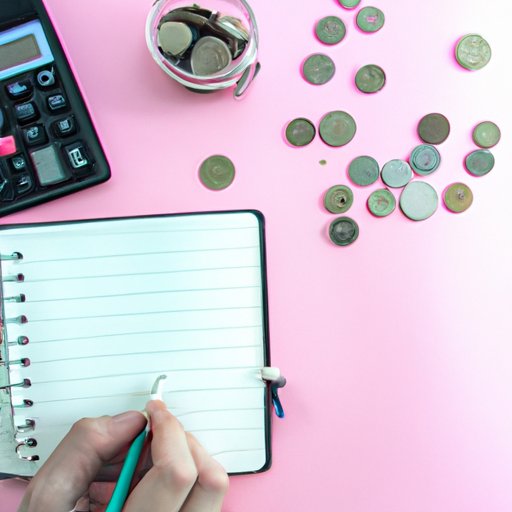Introduction
Budgeting is an effective way to manage your finances and reach your financial goals. It involves tracking your money, setting limits on spending, and making conscious decisions about where you want to allocate your resources. Sticking to a budget can help you stay in control of your money and ultimately save more over time.

Make a Budget and Stick to It
Creating a budget is the first step to staying on one. Begin by determining your total income each month. This includes all sources of income, such as wages, investments, and government benefits. Once you know how much money you have coming in each month, you can calculate your expenses. Make sure to include fixed expenses, like rent and utilities, as well as variable expenses, such as groceries and entertainment. Then, set realistic goals for yourself that you can realistically achieve.
It’s also important to track your spending habits. Keep a record of what you’re spending your money on and when. This will help you identify areas of overspending so you can adjust accordingly. And remember – if you don’t track your spending, you won’t be able to make informed decisions about where to allocate your resources.
Cut Back on Unnecessary Spending
Once you’ve identified areas of overspending, it’s time to start cutting back. Start by creating an emergency fund – ideally, you should aim to save at least three months’ worth of living expenses. This will help cushion any unexpected costs or financial hardships. Then, prioritize your needs over your wants. Ask yourself if you really need something before you buy it. If it’s not essential, chances are you can live without it.
It’s also important to pay off your debts as soon as possible. For example, if you have credit card debt, focus on paying that off before you purchase anything else. Paying off your debts will help free up more money in your budget each month.
Track Your Expenses
Tracking your expenses is key to staying on a budget. Utilize budgeting apps, like Mint or YNAB, to help you keep tabs on your spending. This makes it easier to see where your money is going and make adjustments as needed. It’s also important to keep all your receipts, as they can help you identify any discrepancies in your spending. Finally, monitor your bank accounts regularly to ensure there are no unauthorized transactions.

Take Advantage of Discounts and Sales
When it comes to shopping, look for ways to save money. Use coupons whenever possible and shop during sales. Many stores offer discounts for certain items, so keep an eye out for those. You can also look for online deals, like free shipping or discounted prices. This can help you get the most out of your budget.
Limit Eating Out
Eating out can be expensive, so try to limit it as much as possible. Meal planning is a great way to save money on food. Pick recipes that use ingredients you already have or can easily find on sale. Cooking at home is usually cheaper than ordering takeout and allows you to control the ingredients and portion sizes. You can also bring your lunch to work, which can save you both time and money.
Utilize Public Transportation
Public transportation can be a great way to save money on transportation costs. Research public transportation options in your area and consider investing in a transit pass. Carpooling is another great option – this can help reduce the cost of gas, tolls, and parking fees. Plus, it’s good for the environment!
Consider Second-Hand Shopping
Shopping second-hand can be a great way to save money. Research thrift stores in your area and look for online second-hand shops. Garage sales are another great place to find deals. Plus, buying second-hand helps to reduce waste and support local businesses.
Conclusion
Staying on a budget doesn’t have to be difficult. By tracking your expenses, cutting back on unnecessary spending, taking advantage of discounts and sales, limiting eating out, utilizing public transportation, and considering second-hand shopping, you can save money and reach your financial goals. So don’t be afraid to give budgeting a try – it just might be the key to unlocking your financial freedom.
(Note: Is this article not meeting your expectations? Do you have knowledge or insights to share? Unlock new opportunities and expand your reach by joining our authors team. Click Registration to join us and share your expertise with our readers.)
